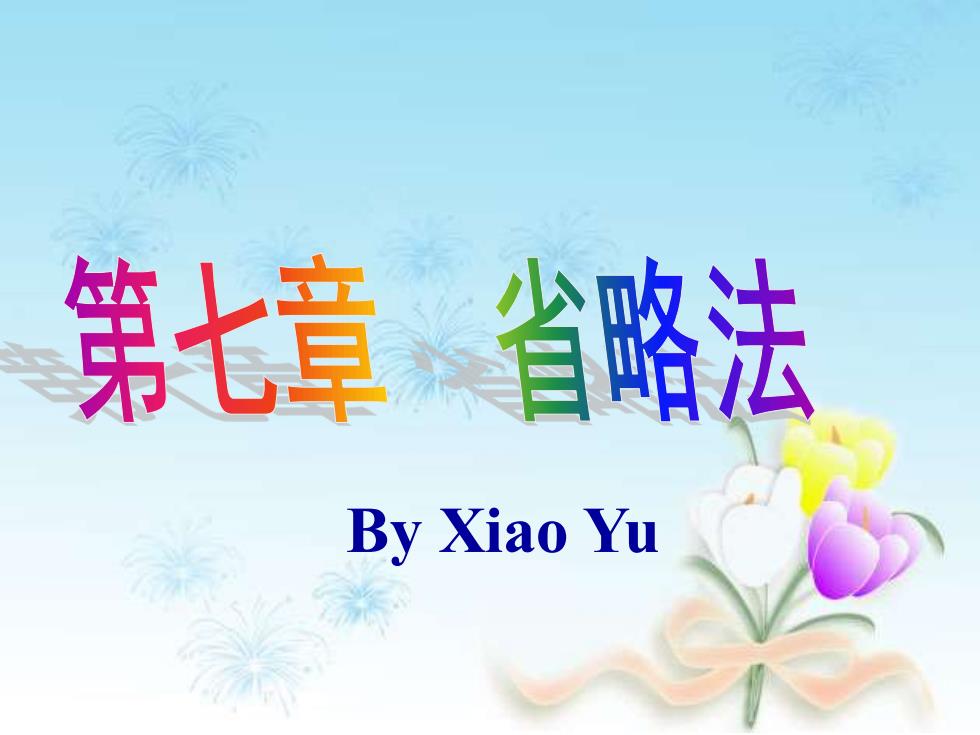
第七章 省略法By Xiao Yu
1 By Xiao Yu
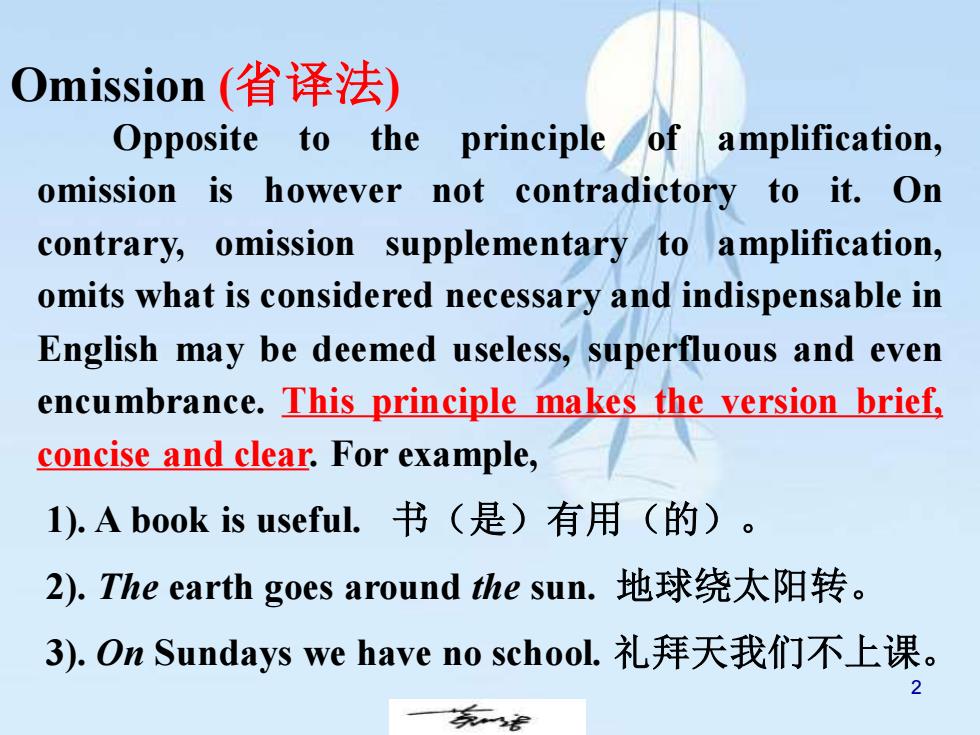
Omission(省译法)Opposite tothe principleof amplification,omission is however not contradictory to it. Oncontrary, omission supplementary toamplificationomits what is considered necessary and indispensable inEnglish may be deemed useless, superfluous and evenencumbrance. This principle makes the version brief.concise and clear. For example,1).Abook is useful.书(是)有用(的)。2).Theearthgoesaround the sun.地球绕太阳转3).OnSundayswehavenoschool.礼拜天我们不上课2
2 Opposite to the principle of amplification, omission is however not contradictory to it. On contrary, omission supplementary to amplification, omits what is considered necessary and indispensable in English may be deemed useless, superfluous and even encumbrance. This principle makes the version brief, concise and clear. For example, 1). A book is useful. 书(是)有用(的)。 2). The earth goes around the sun. 地球绕太阳转。 3). On Sundays we have no school. 礼拜天我们不上课。 Omission (省译法)
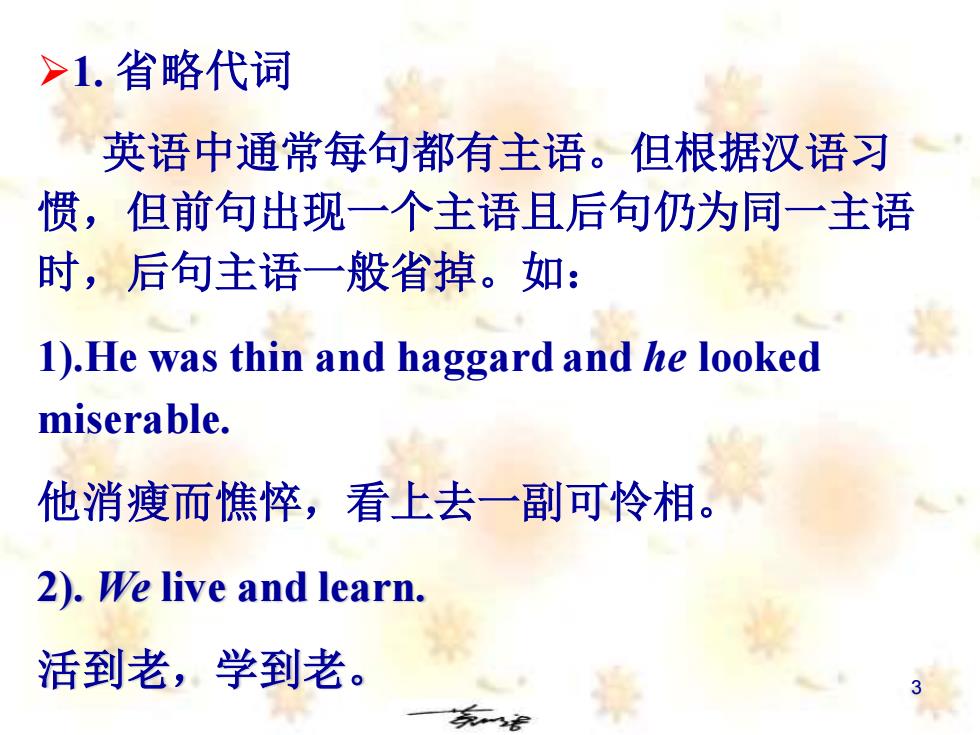
>1.省略代词英语中通常每句都有主语。但根据汉语习惯,但前句出现一个主语且后句仍为同一主语时,后句主语一般省掉。如:1).He was thin and haggard and he lookedmiserable他消瘦而樵,看上去一副可怜相2).Weliveandlearn活到老,学到老
3 ➢1. 省略代词 英语中通常每句都有主语。但根据汉语习 惯,但前句出现一个主语且后句仍为同一主语 时,后句主语一般省掉。如: 1).He was thin and haggard and he looked miserable. 他消瘦而憔悴,看上去一副可怜相。 2). We live and learn. 活到老,学到老
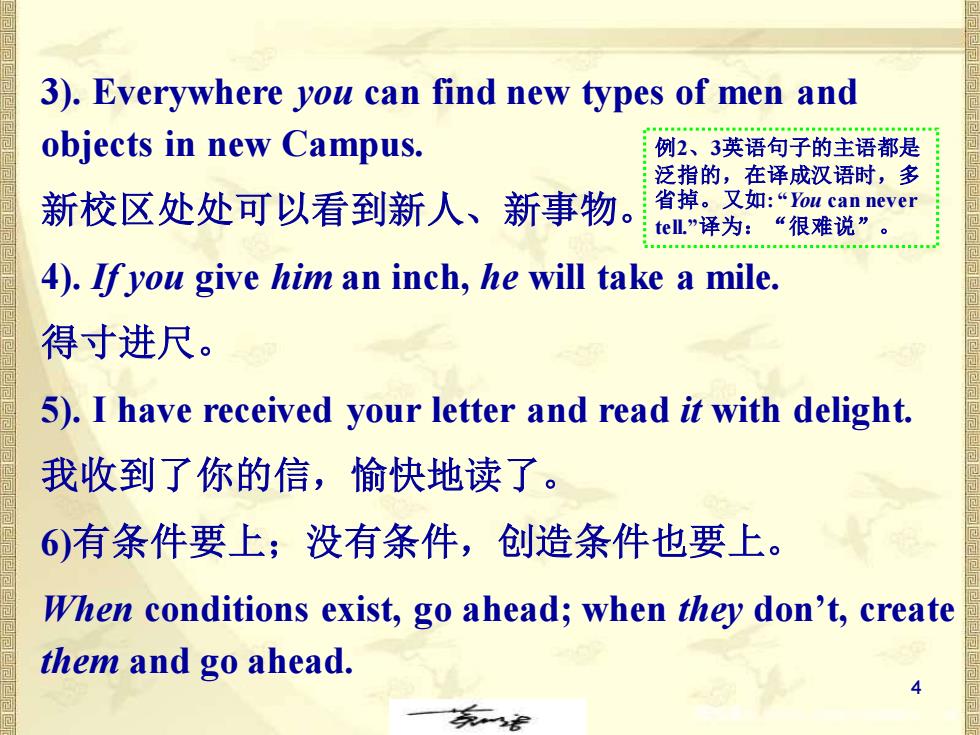
3). Everywhere you can find new types of men andobjects in new Campus.例2、3英语句子的主语都是泛指的,在译成汉语时,多省掉。又如:“Youcannever新校区处处可以看到新人、新事物,tell"译为:“很难说”4).If you give him an inch, he will take a mile.得寸进尺。5).I have received your letter and read it with delight我收到了你的信,愉快地读了。6)有条件要上;没有条件,创造条件也要上。When conditions exist, go ahead; when they don't, createthem and go ahead
4 3). Everywhere you can find new types of men and objects in new Campus. 新校区处处可以看到新人、新事物。 4). If you give him an inch, he will take a mile. 得寸进尺。 5). I have received your letter and read it with delight. 我收到了你的信,愉快地读了。 6)有条件要上;没有条件,创造条件也要上。 When conditions exist, go ahead; when they don’t, create them and go ahead. 例2、3英语句子的主语都是 泛指的,在译成汉语时,多 省掉。又如: “You can never tell.”译为:“很难说
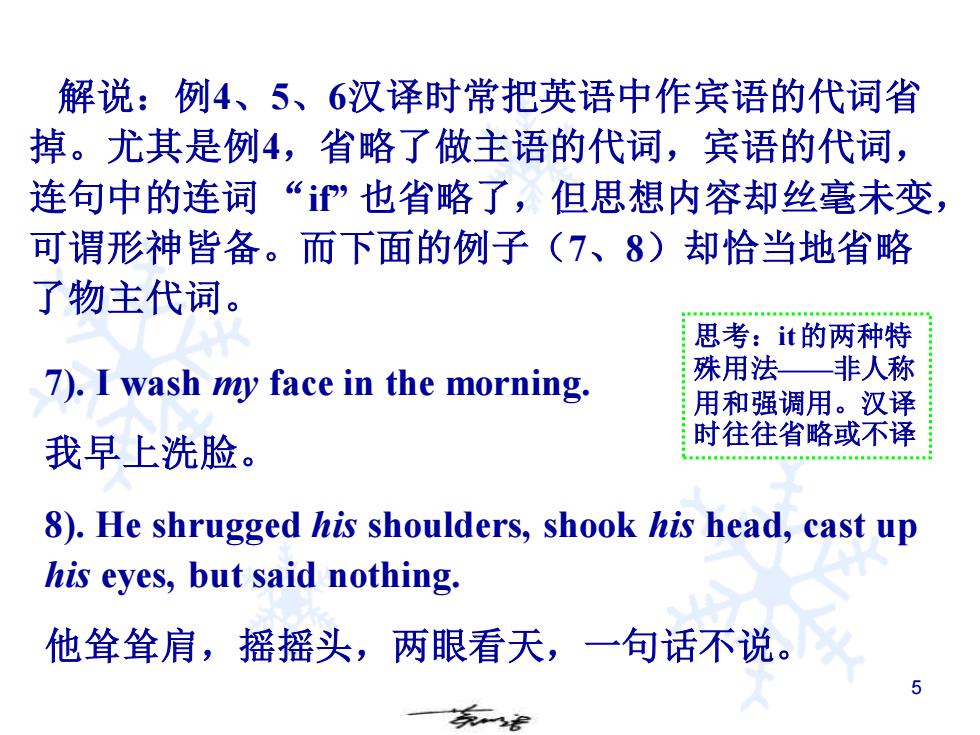
解说:例4、5、6汉译时常把英语中作宾语的代词省掉。尤其是例4,省略了做主语的代词,宾语的代词,连句中的连词“f’也省略了,但思想内容却丝毫未变可谓形神皆备。而下面的例子(7、8)却恰当地省略了物主代词。思考:it的两种特殊用法一非人称7). I wash my face in the morning.用和强调用。汉译时往往省略或不译我早上洗脸。8). He shrugged his shoulders, shook his head, cast uphis eyes, but said nothing.他肩,摇摇头,两眼看天,一句话不说。5
5 解说:例4、5、6汉译时常把英语中作宾语的代词省 掉。尤其是例4,省略了做主语的代词,宾语的代词, 连句中的连词 “if” 也省略了,但思想内容却丝毫未变, 可谓形神皆备。而下面的例子(7、8)却恰当地省略 了物主代词。 7). I wash my face in the morning. 我早上洗脸。 8). He shrugged his shoulders, shook his head, cast up his eyes, but said nothing. 他耸耸肩,摇摇头,两眼看天,一句话不说。 思考:it 的两种特 殊用法——非人称 用和强调用。汉译 时往往省略或不译